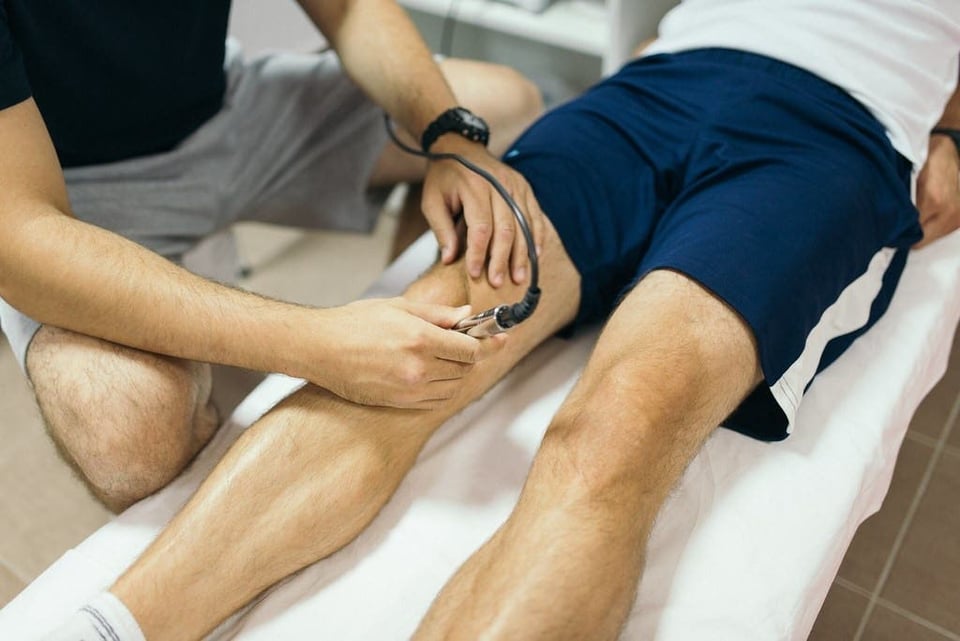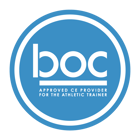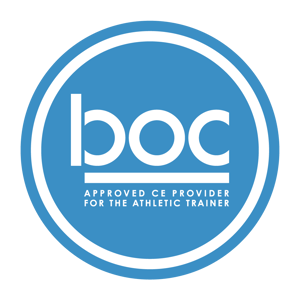Thermal Agents in Rehabilitation: Evidence Based Update

Description
Thermal modalities are by far the most commonly used modality in the rehabilitation setting. They have been used for decades to provide complementary treatment to a host of maladies. But what does the latest evidence show regarding the use of these thermal agents that have been used for decades after injury? This course provides a brief review of the purpose and physiologic basis of the application of thermal modalities as well as the indications for and contraindications to their use. The majority of this course provides a review of recent literature about their safety, efficacy, and clinical utilization. The course discusses the evidence surrounding whole body cryotherapy, the use of RICE vs. POLICE after acute injury, and the use of “older” modalities such as ultrasound, phonophoresis, diathermy, low level laser therapy, fluidotherapy, paraffin, heat, and ice. Note: It is anticipated that the therapist will already have a thorough understanding of the scientific rationale for using various types of thermal modalities and which modality is most appropriate for a given patient condition.



Physicourses is an AOTA Approved Provider of professional development. Course approval ID# 6295. This distance learning-independent course is offered at 0.6 CEUs Intermediate Level, OT Service Delivery, Foundational Knowledge. AOTA does not endorse specific course content, products, or clinical procedures.
Available Course Credits
| Alaska State PT & OT Board | 6.00 | ||
 |
AOTA | 6.00 | |
| Arizona State Board of Physical Therapy | 6.00 | ||
| Arkansas State Board of Physcial Thearpy | 6.00 | ||
 |
BOC | 6.00 | |
| California Physical Therapy Board | 6.00 | ||
| Colorado Division of Professions and Occupations | 6.00 | ||
| Connecticut Department of Public Health | 6.00 | ||
| Delaware Examining Board of Physical Therapists and Athletic Trainers | 6.00 | ||
| District Of Columbia Department of Health | 6.00 | ||
| FPTA | 6.00 | ||
| Georgia State Board of Physical Therapy | 6.00 | ||
| Hawaii Board of Physical Therapy | 6.00 | ||
| Idaho Physical Therapy Licensure Board | 6.00 | ||
| Indiana Physical Therapy Board | 6.00 | ||
| Iowa Board of Physical Therapy and Occupational Therapy | 6.00 | ||
| Kansas State Board of Healing Arts | 6.00 | ||
| Kentucky Board of Physical Therapy | 6.00 | ||
| Louisiana Physical Therapy Board | 6.00 | ||
| Maine Board of Physical Therapy | 6.00 | ||
| Maryland Board of Physical Therapy Examiners | 0.60 | ||
| Massachusetts Board of Allied Health Professionals | 6.00 | ||
| Michigan Board of Physical Therapy | 6.00 | ||
| Mississippi State Board of Physical Therapy | 6.00 | ||
| Missouri Advisory Commission for Physical Therapists | 6.00 | ||
| Montana Board of Physical Therapy Examiners | 6.00 | ||
| Nebraska Department of Health and Human Services | 6.00 | ||
| New Mexico Physical Therapy Board | 6.00 | ||
| North Carolina Board of Physical Therapy Examiners | 6.00 | ||
| North Dakota Board of Physical Therapy | 6.00 | ||
| Office of Professional Regulation, Vermont Secretary of State | 6.00 | ||
| Oklahoma Board of Medical Licensure and Supervision - Physical Therapy | 6.00 | ||
| Oregon Board of Physical Therapy | 6.00 | ||
| Pennsylvania Bureau of Professional and Occupational Affairs - Physical Therapy | 6.00 | ||
| Physical Therapy Governing Board New Hampshire | 6.00 | ||
| South Carolina Board of Physical Therapy | 6.00 | ||
| South Dakota Physical Therapy License Board | 6.00 | ||
| State of Alabama Board of Physical Therapy | 6.00 | ||
| State of Rhode Island Department of Health | 6.00 | ||
| Tennessee Board of Physical Therapy | 6.00 | ||
| Utah Physical Therapy Licensing Board | 6.00 | ||
| Virginia Board of Physical Therapy | 6.00 | ||
| Washington State Board of Physical Therapy | 6.00 | ||
| West Virginia Board of Physical Therapy | 6.00 | ||
| Wisconsin Physical Therapy License Board | 6.00 | ||
| Wyoming Board of Physical Therapy | 6.00 |
Course Content
| 435a Thermal Agents in Rehabilitation: Evidence Based Update | Module | ||
| Course Evaluation | Module |
Daniel Lorenz, DPT, PT, ATC, LAT, CSCS
Dr. Lorenz is the Director of Sports Medicine at Lawrence Memorial Hospital/OrthoKS in Lawrence, KS. Previously, he was an owner and Director of Physical Therapy for Specialists in Sports and Orthopedic Rehabilitation (SSOR), an outpatient physical therapy practice based in Overland Park, KS with three locations. He has a B.S. in Health Sciences with an emphasis in Athletic Training from Grand Valley State University in 1999 and a M.S in Physical Therapy from Grand Valley State in 2001. In 1997, he was an athletic training intern for the Chicago White Sox Major League Baseball team.
From 2004- 2005, he completed the Duke University Sports Physical Therapy Fellowship. Formerly, he was an assistant athletic trainer and physical therapist for the Kansas City Chiefs from 2005-2007. In 2009, he earned his Doctor of Physical Therapy from the University of St. Augustine in St. Augustine, FL. He has served as a rehabilitation consultant for numerous local sports teams including Sporting Kansas City, Kansas City Chiefs, and the Kansas City Mavericks, and also many local colleges including Mid-America Nazarene University and University of Missouri Kansas City. He is currently the Chair of the Sports Performance Enhancement Special Interest Group for the American Academy of Sports Physical Therapy.
Dr. Lorenz has been published several times in peer-reviewed journals and has been an invited speaker numerous times at local, state, and national conferences in sports medicine. In 2018, Dan was recognized by the NSCA as the Sports Medicine/Rehabilitation Professional of the Year and in 2014, he was awarded the inaugural Distinguished Physical Therapy Alumni Award from Grand Valley State University.

Customer Cancellation:
Customers may request cancellations of their enrollment or subscription in our digital or live educational services, subject to the terms outlined below. Cancellation requests must be made in writing, either through email or through our designated cancellation process.
Refund Policy:
Refunds will be provided according to the following guidelines: i) For cancellation requests made within 5 days of the initial enrollment or subscription, a full refund will be issued. Refunds will be issued using the same method of payment used for the original transaction, unless otherwise agreed upon in writing.
Provider Cancellation:
In the event Physicourses cancels your course, you will be issued a full refund or transfered to a course of equal or greater value.
Physicourses Conflict of Interest Disclosure Policy for Authors and Staff:
All persons in a position to control the content of any educational activity (authors or staff from Physicourses) are required to disclose to Physicourses any potentially biasing or potential conflict of interests in relationships of a financial, professional, or personal nature.
The intent of this disclosure is not to prevent authors or staff with commercial affiliations from planning an educational activity, or to prevent a Presenter with commercial affiliations from presenting, but rather to inform Physicourses of any potentially biasing relationships so that conflicts are resolved prior to the activity.
It is the policy of Physicourses to ensure balance, independence, objectivity and scientific rigor in all of its continuing education activities. All relevant conflicts of interest identified by the planner, presenter, or as determined by Physicourses will be disclosed to the audience verbally and in writing prior to the start of the presentation.
Definitions for Authors/Staff:
Relevant financial relationships are those relationships in which you benefit by receiving a salary, royalty, intellectual property rights, gift, speaking fee, consulting fee, honoraria, ownership interest (e.g., stocks, stock options, or other ownership interest, excluding diversified mutual funds), or other financial benefit. Financial relationships can also include “contracted research” where the institution gets the grant and manages the funds and you are the principal or named investigator on the grant.
Educational Level: Intermediate
Target Audience: PT, PTA, OT, OTA, ATC
Course Completion Requirements: Passing an online exam with 70% or greater will be required to earn continuing education credit
This course is approved for 0.6 CEUS. 6 contact hours
Physicourses is committed to ensuring accessibility to the most extensive audience possible. If you have any questions or special needs requests, please contact us at info@physicourses.com.